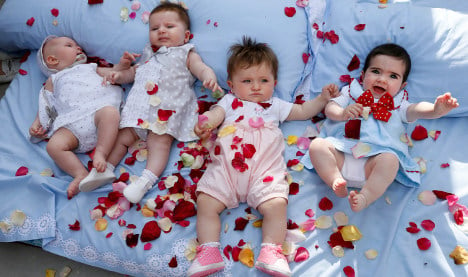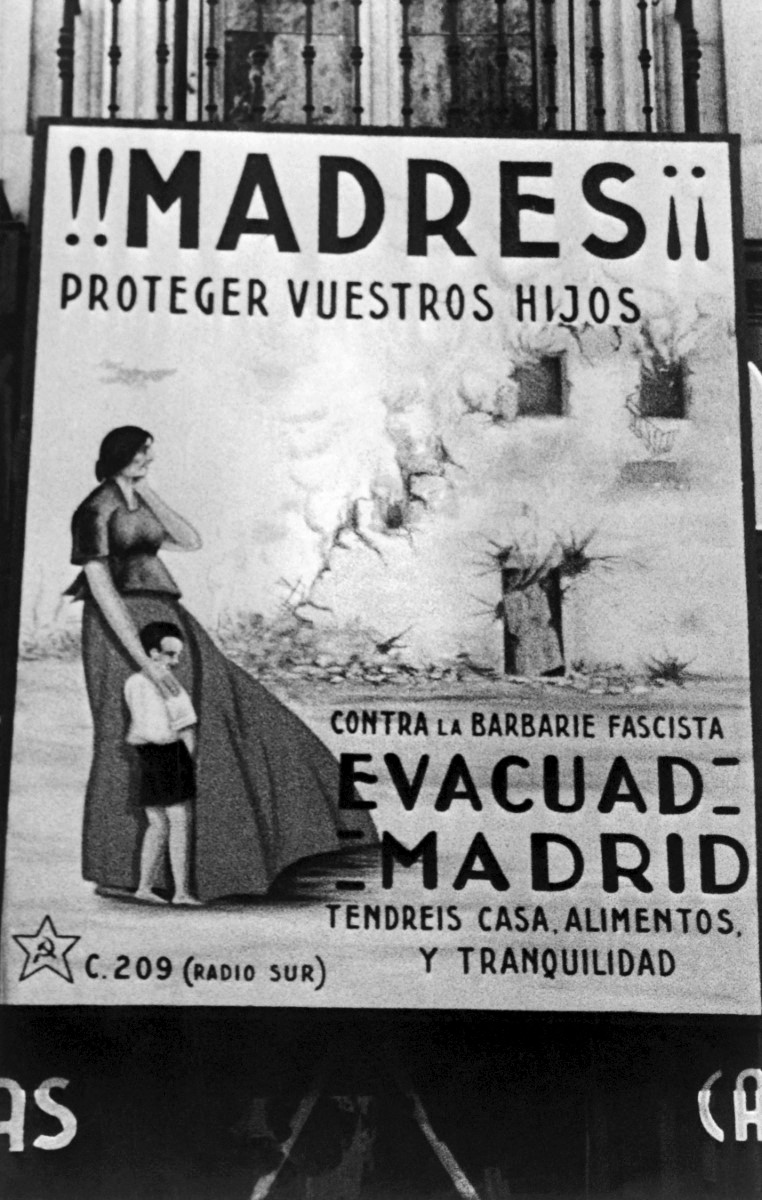Daniel and Lucía have in recent years become the most popular baby names for boys and girls in Spain, according to the latest data from the National Institute of Statistics (INE) on Thursday.
The report showed the top baby names in Spain for each decade, dating back to before the 1930s.
For most of the past 80 years, Maria for girls and Jose or Antonio for boys had been the top go-to names for babies in Spain.
But this decade has seen a shift in the way Spanish parents name their newborns, opting for a break in tradition. Between 2010 and 2014, Daniel and Lucia have been the top baby names chosen instead.
We took a look at some of the top names – and most original ones – that have become in vogue this decade.
1. Daniel & Lucía
 Photo: Toshifumi Kitamura/AFP.
Photo: Toshifumi Kitamura/AFP.
This is the first time that Daniel has risen to the top for boys names.
And Lucia becoming a top pick is the first time since the 1980s when the standard of Maria or Maria Carmen has been beat out for number one – and only the second time since before the 1930s where Maria hasn’t been above the rest.
2. Hugo & Maria
 Photo: Pedro Armestre/AFP.
Photo: Pedro Armestre/AFP.
Though it lost its top spot, Maria still came in at number two for girls so far this decade, meaning Spaniards haven’t completely lost their love for the name, which is the Spanish version of Mary.
But Hugo has made a huge jump in its popularity, now at second place when in the 2000s it was only at twelfth place. Before that, the Germanic name was never even in the top 50.
3. Paula & Alejandro
 Photo: Desiree Martin/AFP.
Photo: Desiree Martin/AFP.
While Alejandro might seem like a natural Spanish name to hold a top spot, it actually didn’t make it into the top ten until the 1990s, holding onto first place through 2009. Has Lady Gaga’s song helped it maintain its popularity?
Paula also sounds quite traditional, but was never in the top 50 even until the 1980s when it took 48th place and then shot up into the top ten the following decade, where it has remained since.
And the more unusual names…
Azonto boy: Hey guuurrrl what's your name?
Me: A girl has no name #GameofThrones pic.twitter.com/lmeiuoSBjq— A girl has no name (@del_dear) May 9, 2016
Some of the less traditional names to make top spots were Iker at number 14, which is a Basque name, and Izan at number 23 – neither of these names had made it into the top 50 before the turn of the 21st century.
For female names, the Latin-origin Valeria at number 12 was never a common pick before this decade.
And Noa – more commonly a boy’s name – first appeared as the 49th most popular name in the 2000s, but has jumped all the way to 16th place in recent years.
Perhaps the most eyebrow-raising names – though less common – include those inspired by football. There are about 100 little boys born since 2010 with the first name of Neymar, like the Brazilian-born Barcelona football star.
Another 22 boys born since 2000 are named Zidane after the Real Madrid manager, Zinedine Zidane.
Pop culture has also apparently had an impact on the Spanish baby-naming process as more than 120 baby girls born since 2010 are named Arya and 22 were named Daenerys – obvious tributes to the beloved Game of Thrones series.
Sociologist Roberto Barbeito told news daily 20 Minutos that Biblical names, often imposed during baptism by the Church, have lost some popularity because Catholicism plays less of a role now in Spaniard’s lives.
“Names are not free choices, their selection is deeply influenced by the social context,” Barbeito said.
“Names are used as references for the way of life, it’s like saying to your progeny that you want them to share the same qualities that distinguish the person from whom you took the name.”




 Please whitelist us to continue reading.
Please whitelist us to continue reading.
Member comments